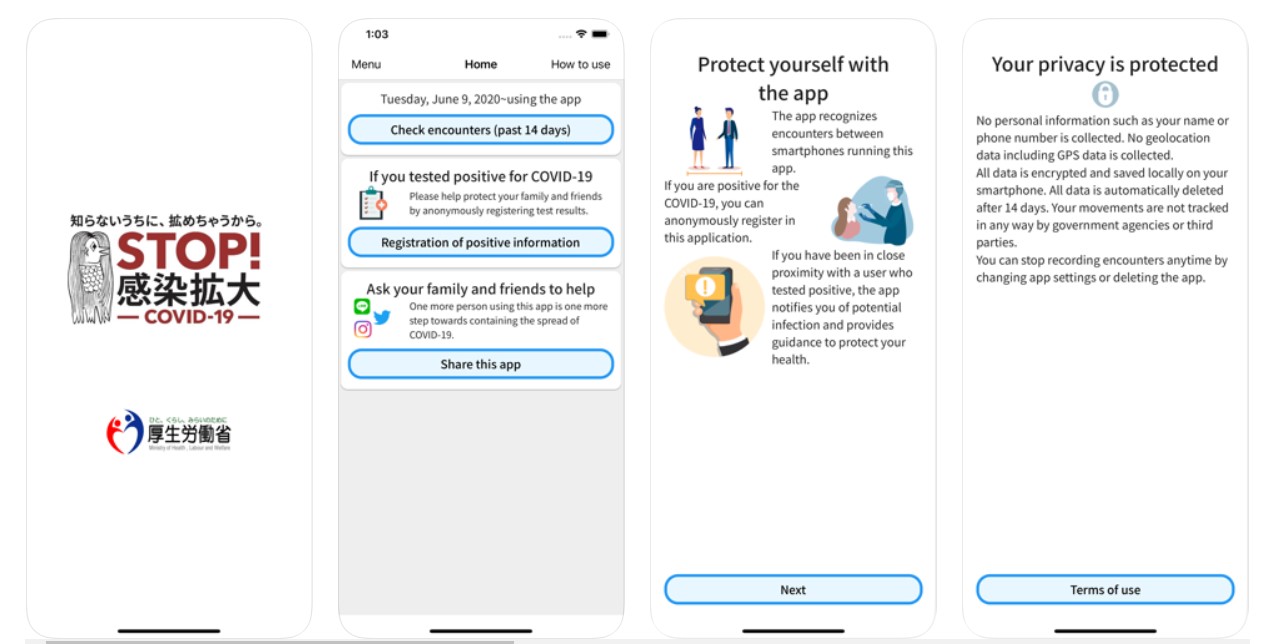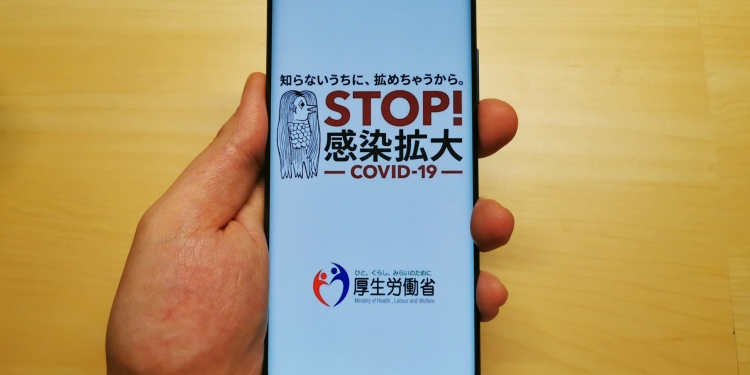The Japanese government joins a growing list of world governments that are turning to contact tracing apps to help combat the spread of COVID-19. The app for iOS and Android, known as COCOA (COVID-19 Contact-Confirming Application), relies on Apple and Google’s co-developed exposure notification platform.
To date, Japan’s COVID-19 situation has seen the country record 17,668 cases and 935 deaths. The Japanese government plans to ease COVID-19 restrictions as the number of new infections fall and get the economy running again.
In May the Japanese government hired a team of engineers, that also work for Microsoft, to develop the app. The app uses Bluetooth to collect data whenever it comes into a one-meter distance with the user of another device for more than 15 minutes.
Should a person report to the app that they have tested positive for COVID-19, the app will scan two weeks’ worth of contact data. It would then notify everyone who has been in close proximity with that person to get themselves tested.
Rules laid down by Apple and Google, that stipulate the software can only be used by public health agencies, delayed the government’s plans to roll out another app that was worked-on by a Tokyo-based team.

Apple and Google’s tracking platform is said to not store any personal information like a user’s location or phone number. Despite these assurances, it is uncertain if this will go over well with citizens concerned about their digital privacy.
Even though the app will be made available soon to the public, Japan’s government will find it challenging to persuade the public to use the app. A University of Oxford estimate states that in order for contact tracing apps to be effective it needs to have a 60% penetration rate.
Even in Singapore and Iceland, two countries that are early adopters of the technology, usage only stands at 40% or less.
The roll out of contact tracing apps has not been smooth for a vast majority of governments. Many have sought more control over data than Apple and Google’s APIs allow.
Germany has its own contract tracing app that uses the same platform as the Japanese government. It had originally intended to develop it on a different system. Similarly, the UK government abandoned plans for a centralised contact-tracing app in favour for the system by Apple and Google.
[SOURCE]








